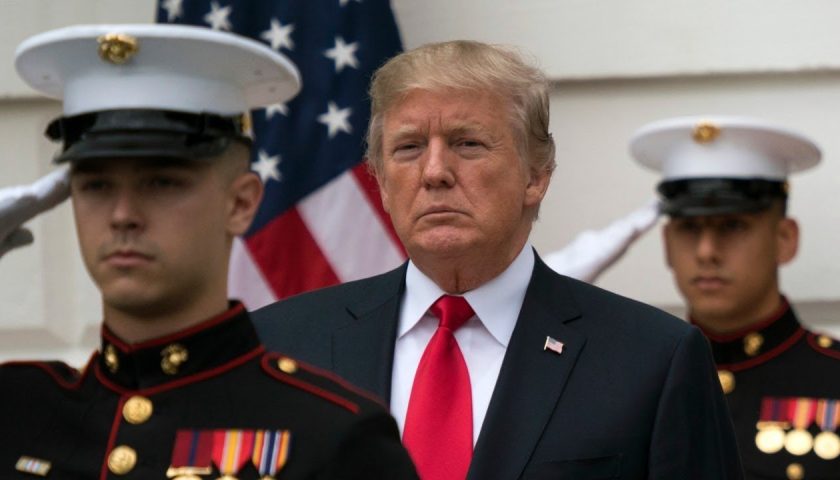Even in their most unfavorable predictions, it is unlikely that Western military strategists could have foreseen such a pitiful conclusion to the Syrian episode of the war against the Islamic State. Indeed, the logic which led President Trump to withdraw American forces from the Turkish-Syrian border, leading to the intervention of the Turkish armed forces, then the Syrian and Russian forces to “secure” the 30 km strip occupied by the Syrian Democratic Forces of the YPG, is now coming to an end. And what a term!
The American President thus announced that he intended lift sanctions against Turkey, particularly in terms of armaments, since “The country had put an end to its offensive as demanded by the United States”. In the process, NATO Secretary General Jens Stoltenberg immediately indicated that he intended resume military cooperation with Turkey, and in particular to once again strengthen, as requested by Ankara, the country's anti-aircraft defense. The American president also developed his positions on the subject, explaining that American intervention in the region had created much more instability and threats than it had eliminated (which is not fundamentally false ), and that once Daesh was eliminated, it was therefore necessary for US forces to withdraw and not be involved in conflicts deemed “internal”. This speech is naturally aimed at the protectionist and isolationist branch of American public opinion, which constitutes a large part of the president's electorate today.

On the Russian side, aware of the incontestable victory achieved, we now demand the immediate withdrawal of “all foreign troops present illegally on Syrian soil“, recalling that the foreign forces authorized to do so by the “legitimate” Syrian government were Russian forces. This message is addressed more particularly to the French forces, who remained alongside the Kurds during the Turkish assault, as well as to the American forces who, although they had left the Kurdish front line before the attack launched by Ankara, had nevertheless maintained forces to ensure the “security” of Syrian oil installations in the Kurdish zone. It should be noted, however, that this Russian claim was made by Dmitry Peskov, the Kremlin spokesperson, and not by Vladimir Putin himself, allowing, as is often the case in Russian diplomacy, to maintain an axis of negotiation, particularly with the Europeans. in this file.
European diplomacy has been sluggish for several days, failing to define a common line of communication that is both diplomatically reasonable and acceptable to European public opinion. It remains to be seen whether, in the coming weeks, it will manage to create a sufficiently strong consensus to assert a position that is not strictly aligned with Washington.

It seems that on the Turkish side, what is perceived politically as a great victory, both over the Kurds and over the Europeans, has only strengthened the determination of the country's authorities to challenge the European Union. So, Turkish drilling ships carried out survey operations in the Cypriot area, escorted by Turkish naval vessels, even though the European Union, and France in particular, had warned Ankara against this type of action. The absence of a strong response to the multiple Turkish provocations certainly does not argue in favor of a reserved and conciliatory attitude from the Turkish authorities. It is therefore more than likely that, in the future, Ankara will continue to ignore European and even American positions, whether with regard to Cypriot gas or the Greek islands in the Aegean Sea, in a scenario which is reminiscent of that of the 30s.
